May 20, 2025
Closing with GFunnel: Mastering the Art of Logical Selling
In the competitive world of sales, understanding the nuances of closing deals is crucial for success. This blog delves into effective strategies for closing with logic, emphasizing the importance of intention and belief in the sales process. Join us as we explore the principles of 'Closing with GFunnel' and learn how to empower both yourself and your prospects in making informed decisions.
Table of Contents
- Introduction to Closing
- The Importance of First Impressions
- Prioritizing the Prospect Over the Sale
- The Dance of Closing: A Fluid Process
- Transference of Belief Over Trust
- The Power of Resourcefulness in Sales
- Handling the 'I Need to Think About It' Response
- Creating Value to Overcome Price Objections
- The Final Thoughts on Closing with GFunnel
- FAQ Section
Introduction to Closing
Closing is a pivotal moment in the sales process, representing the transition from discussion to commitment. It requires a blend of emotional intelligence and strategic thinking. Understanding how to effectively close deals can significantly impact your success in sales.
At its core, closing is about facilitating a decision. It’s not merely about securing a sale; it’s about guiding your prospect toward making an informed choice that aligns with their needs and desires.
The Ethics of Sales: Help vs. Manipulation
The ethical landscape of sales is often fraught with tension. The difference between helping someone make a beneficial choice and manipulating them into a decision lies in your intention. Genuine salesmanship is rooted in a desire to assist, while manipulation seeks to exploit.
When approaching a sale, ask yourself: Are you genuinely aiming to help the prospect? If your intention is to serve their best interests, then you're on the right path. However, if your focus is solely on closing the deal at any cost, you risk crossing ethical boundaries.

Different Selling Styles and Buyer Types
Recognizing that different buyers respond to varied selling styles is crucial. Some may resonate more with emotional appeals, while others prefer logical reasoning. Understanding your prospect’s personality can enhance your ability to connect and close effectively.
For instance, emotional buyers may respond positively to personal stories and relatable experiences. In contrast, logical buyers often seek data, statistics, and clear advantages. Adapting your approach based on the buyer’s tendencies can increase your chances of success.

Identifying Buyer Types
- Emotional Buyers: These individuals are swayed by feelings and personal connections. They prioritize how a product makes them feel.
- Logical Buyers: They focus on facts, figures, and the practicality of a product or service. Their decisions are often based on thorough analysis.
- Mixed Buyers: Many people fall somewhere in between, exhibiting traits of both emotional and logical buyers. Recognizing this can help tailor your pitch.
Beliefs That Drive Successful Selling
Successful salespeople often share common beliefs that drive their actions. One such belief is that prospects want to believe in the value of what they’re being offered. Your role is to help them justify that belief.
Another critical belief is that selling is not just about the transaction. It’s about building a relationship that fosters trust and loyalty. When you prioritize the prospect’s needs, you create a foundation for long-term success.
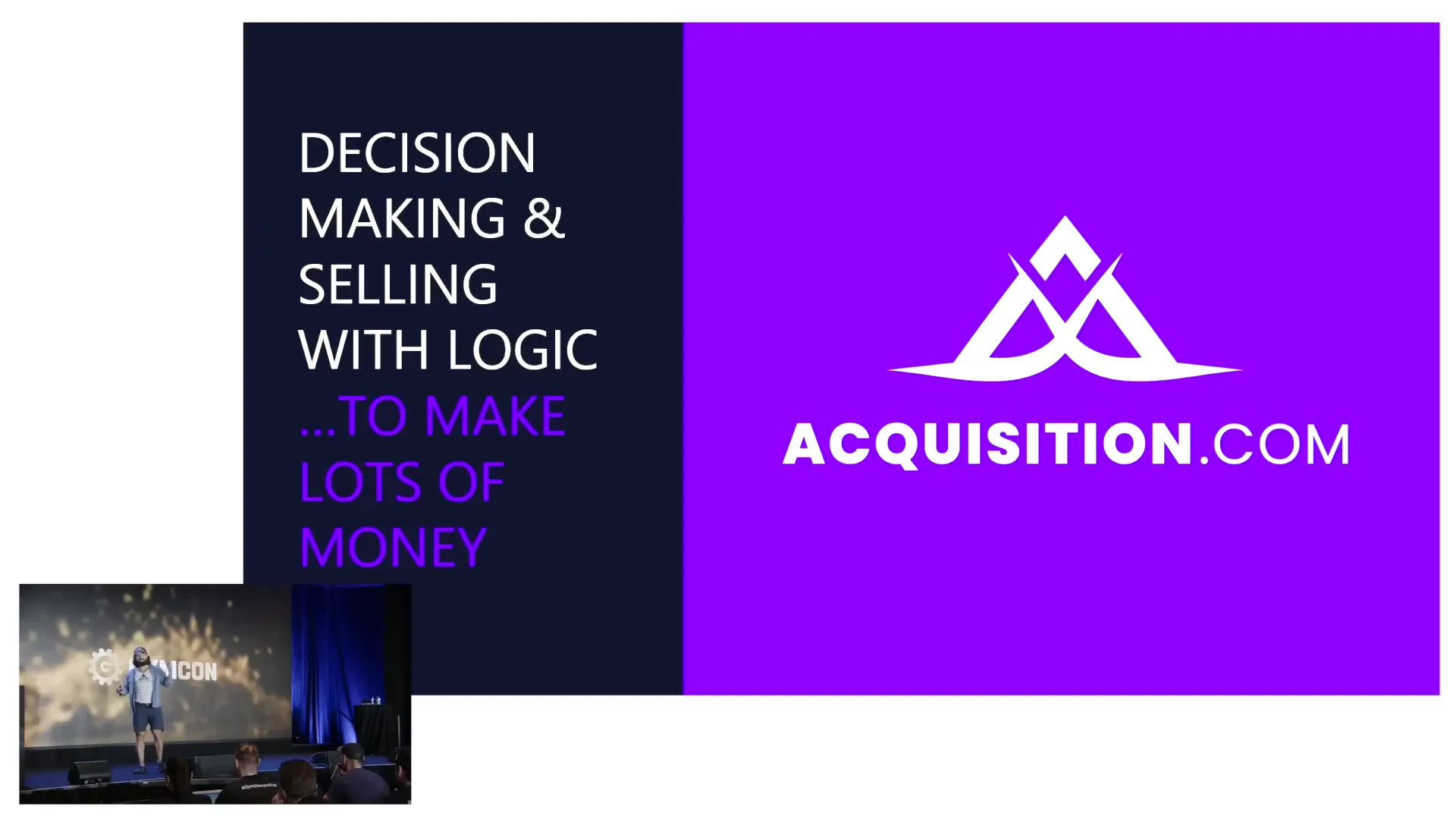
Understanding Obstacles vs. Objections
In sales, it’s essential to differentiate between obstacles and objections. Obstacles are challenges that can be addressed before the closing moment, while objections arise during the closing process.
By anticipating potential obstacles, you can prepare solutions in advance. This proactive approach can help create a smoother path to closing. On the other hand, handling objections requires active listening and effective communication skills to navigate the conversation.
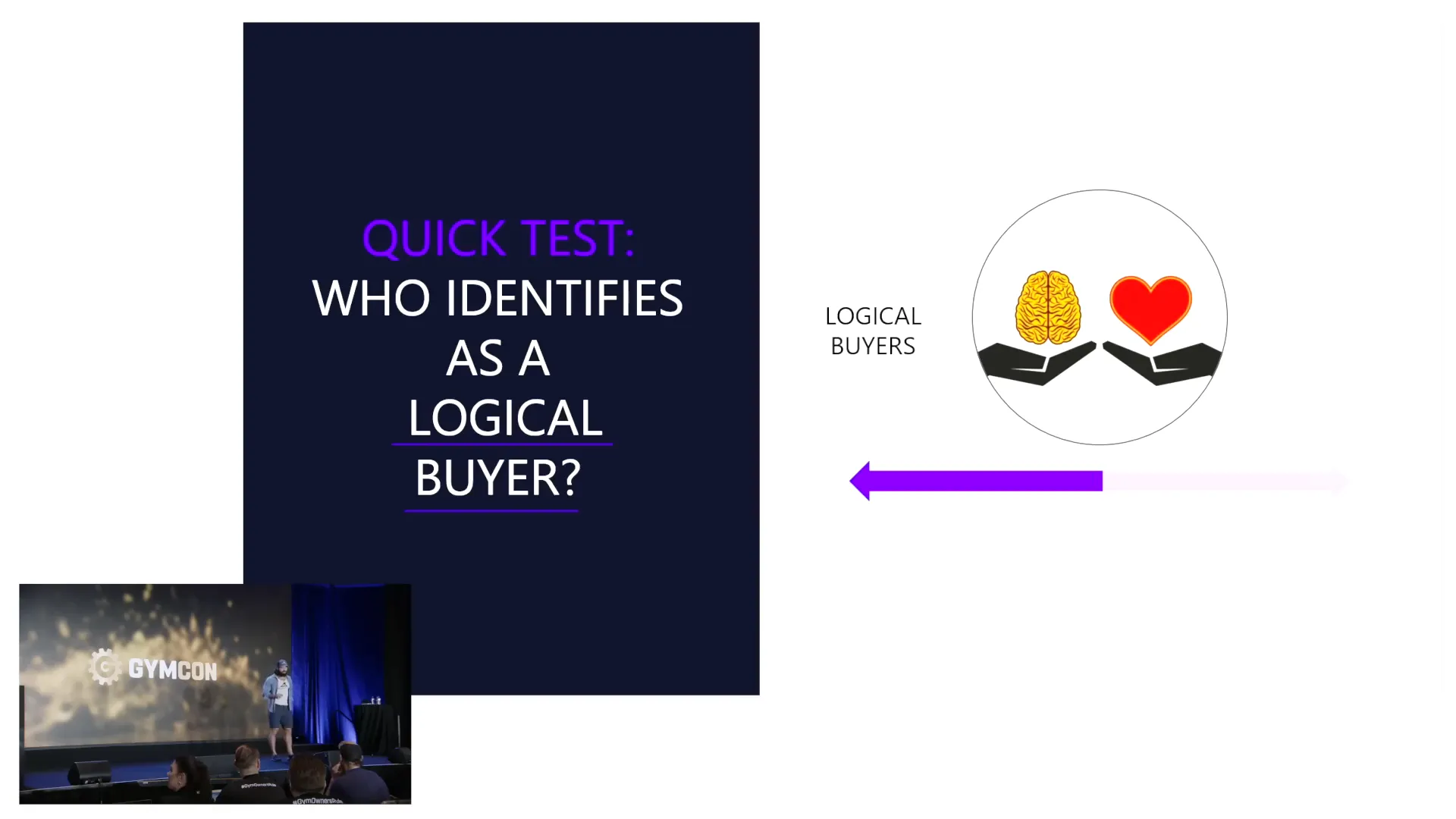
Expecting and Planning for No
One of the most important lessons in sales is to expect rejection. Not every prospect will say yes, and that’s okay. Planning for a “no” can help you maintain your composure and confidence during the sales process.
When faced with a rejection, it’s vital to understand that it’s not personal. Instead, view it as an opportunity to learn and refine your approach. Each “no” brings you one step closer to a “yes.”
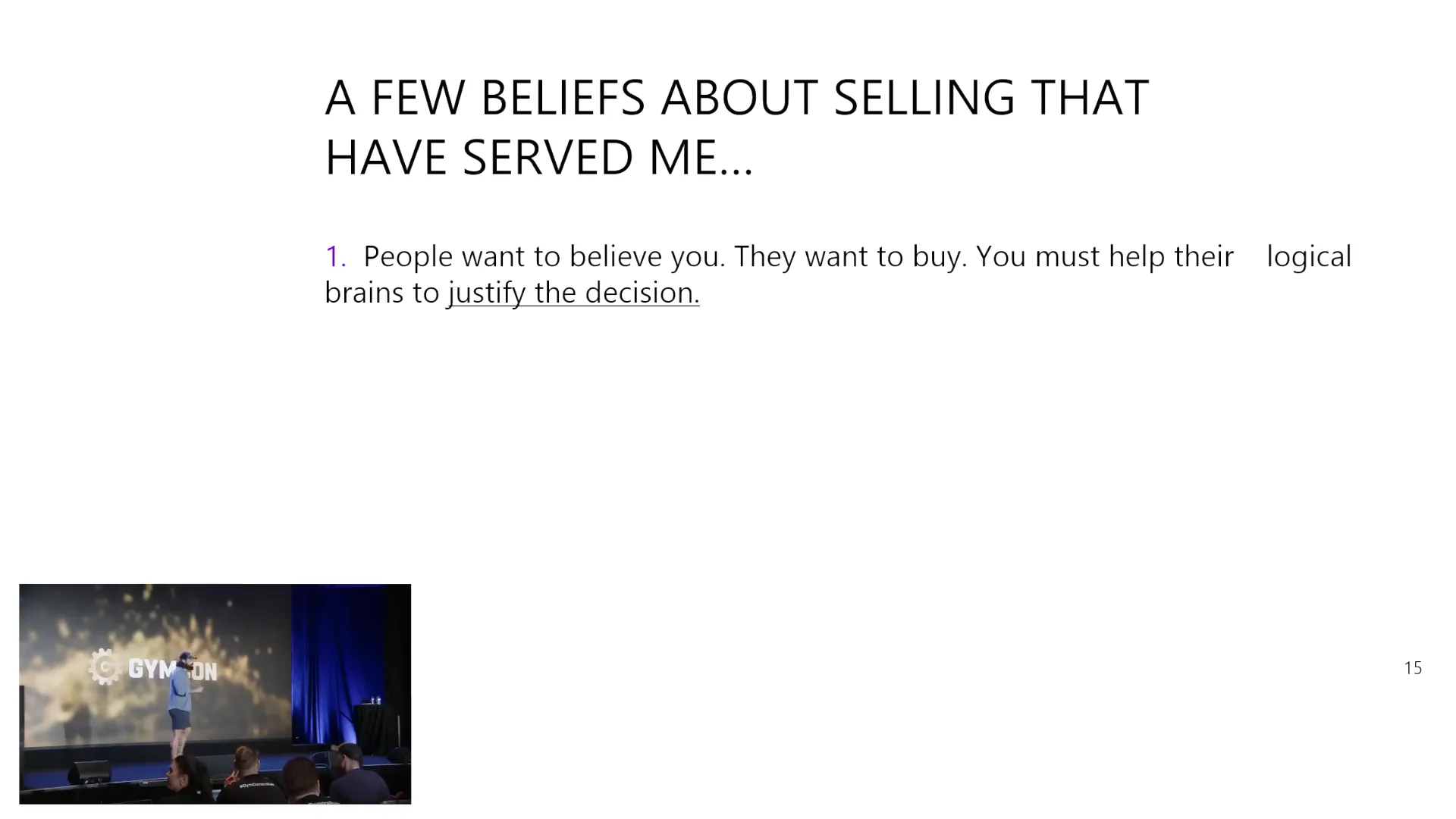
Incorporating these principles into your sales strategy will empower you to close with confidence and integrity. The art of closing is not just about the transaction; it’s about fostering relationships and building trust. Remember, you’re not just selling a product; you’re offering a solution that can enhance your prospect's life.
As you navigate the complexities of sales, keep the key phrase "Closing with GFunnel" in mind. It serves as a reminder of the importance of ethical selling and the responsibility you hold in guiding your prospects toward the best decisions for themselves.
The Importance of First Impressions
First impressions are critical in the world of sales. They can set the tone for the entire interaction and significantly influence the prospect's decision-making process. When you engage with a prospect, the first few moments are your opportunity to convey confidence, competence, and care.
Consider how you present yourself. Your body language, tone of voice, and even the words you choose all contribute to that initial impression. A warm smile and a firm handshake can establish rapport, while a confident demeanor can instill trust. Remember, you're not just selling a product; you're selling yourself and the promise of what you can deliver.
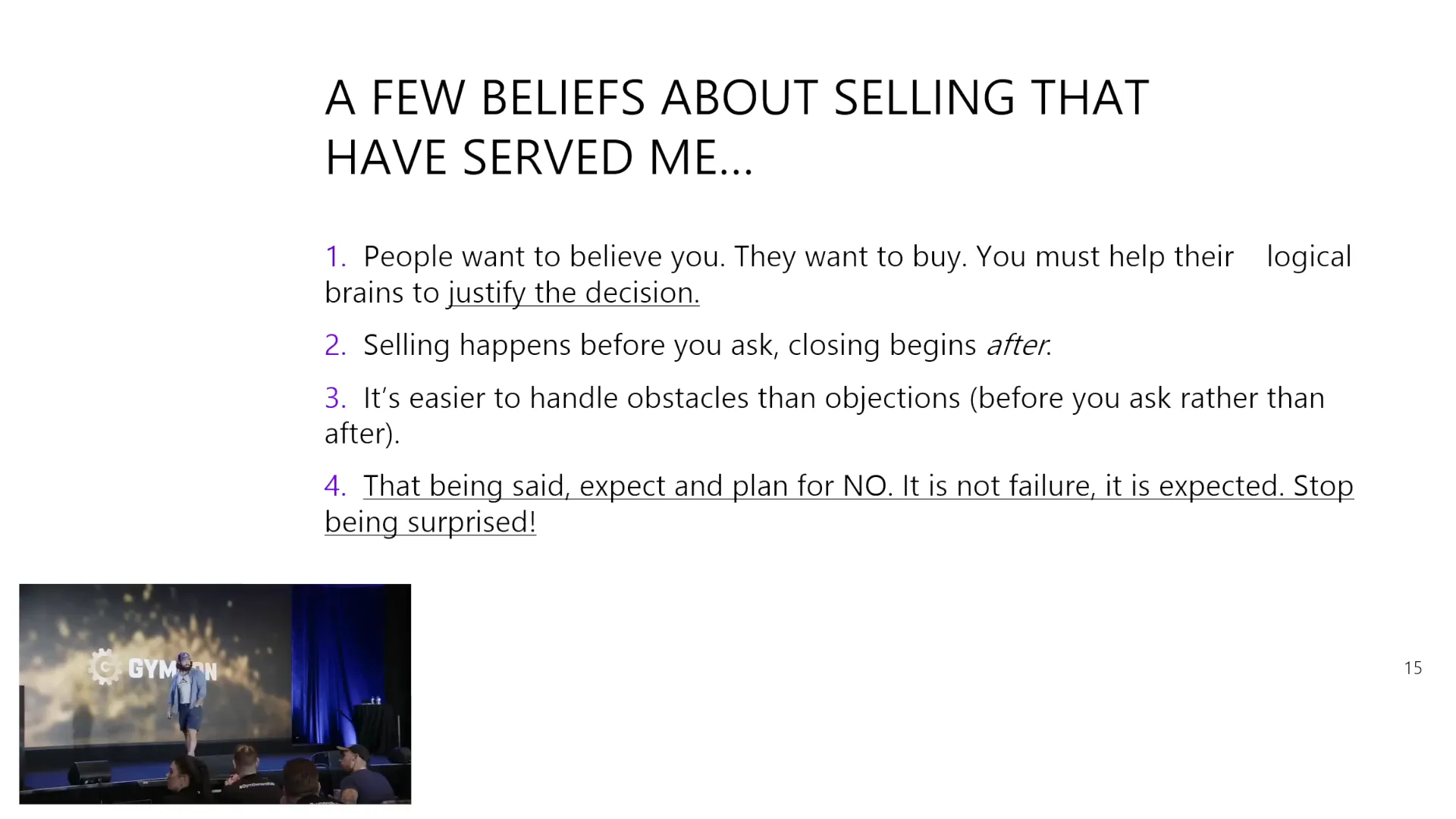
Prioritizing the Prospect Over the Sale
In sales, it's essential to prioritize the prospect's needs above the immediate sale. This means actively listening and understanding their pain points, desires, and goals. When prospects feel valued and understood, they are more likely to trust you and engage in a meaningful dialogue.
Instead of pushing for a sale, focus on how your solution aligns with their needs. Ask open-ended questions that encourage them to share their thoughts and feelings. This approach not only builds rapport but also positions you as a partner in their journey, rather than a mere salesperson.
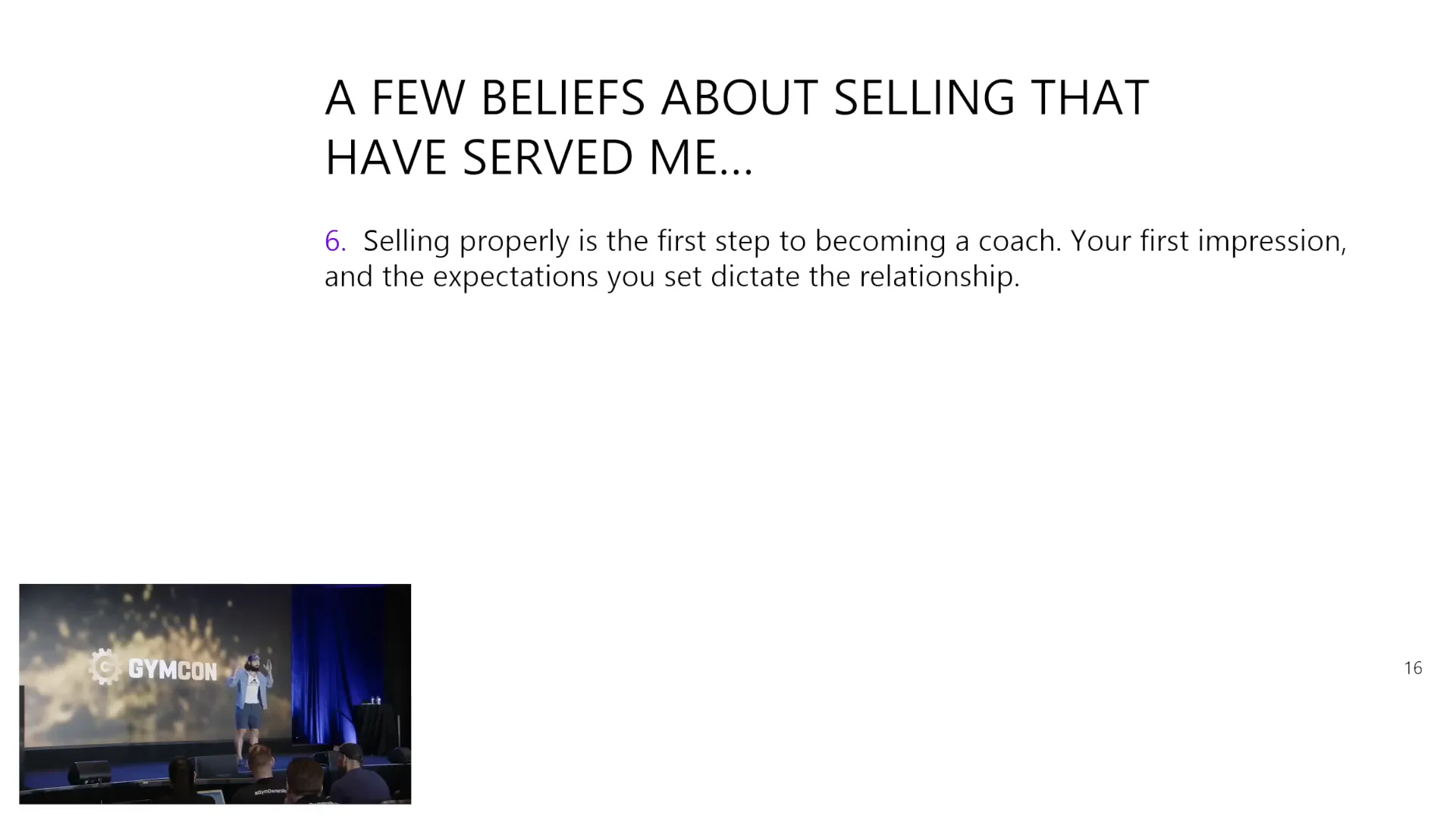
The Dance of Closing: A Fluid Process
Closing a sale is not a rigid, one-size-fits-all process; it’s more like a dance. Each interaction is unique, requiring you to adapt your approach based on the prospect's responses and needs. This fluidity allows you to navigate the conversation effectively, addressing concerns as they arise while guiding them toward a decision.
Think of closing as a series of small steps rather than a single leap. Each question you ask and each piece of information you share should lead the prospect closer to a decision. Pay attention to their verbal and non-verbal cues, adjusting your rhythm to maintain engagement and comfort throughout the process.
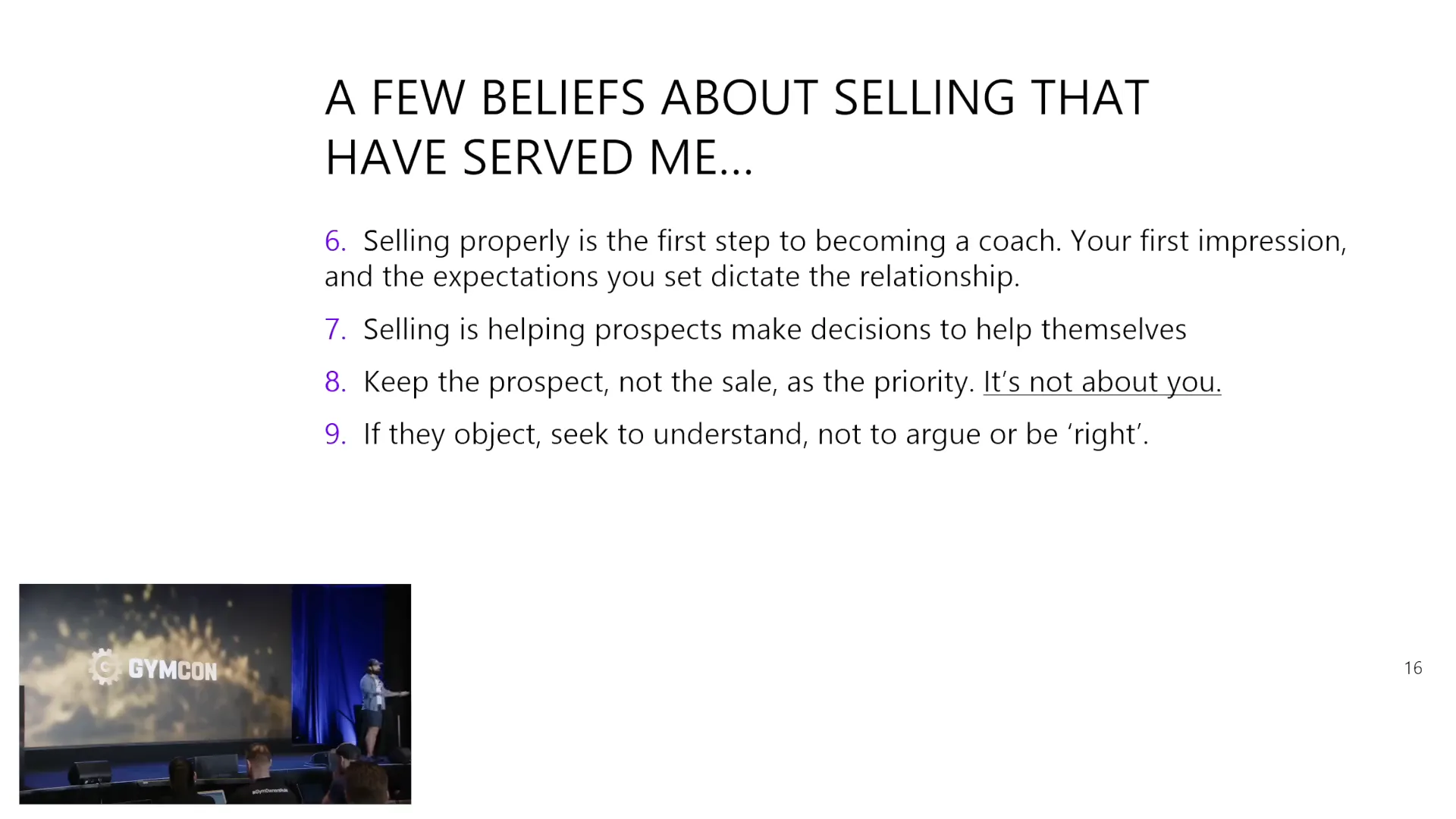
Transference of Belief Over Trust
In sales, transference of belief is more powerful than trust alone. When you can instill belief in your product or service within your prospect, they are more likely to make a commitment. This belief is rooted in your ability to communicate the value and effectiveness of what you are offering.
To achieve this, share compelling stories and testimonials that resonate with the prospect's experiences. Highlight how others have benefited from your solution, creating a relatable narrative that fosters belief. When prospects believe in the product, their trust in you as a salesperson naturally follows.
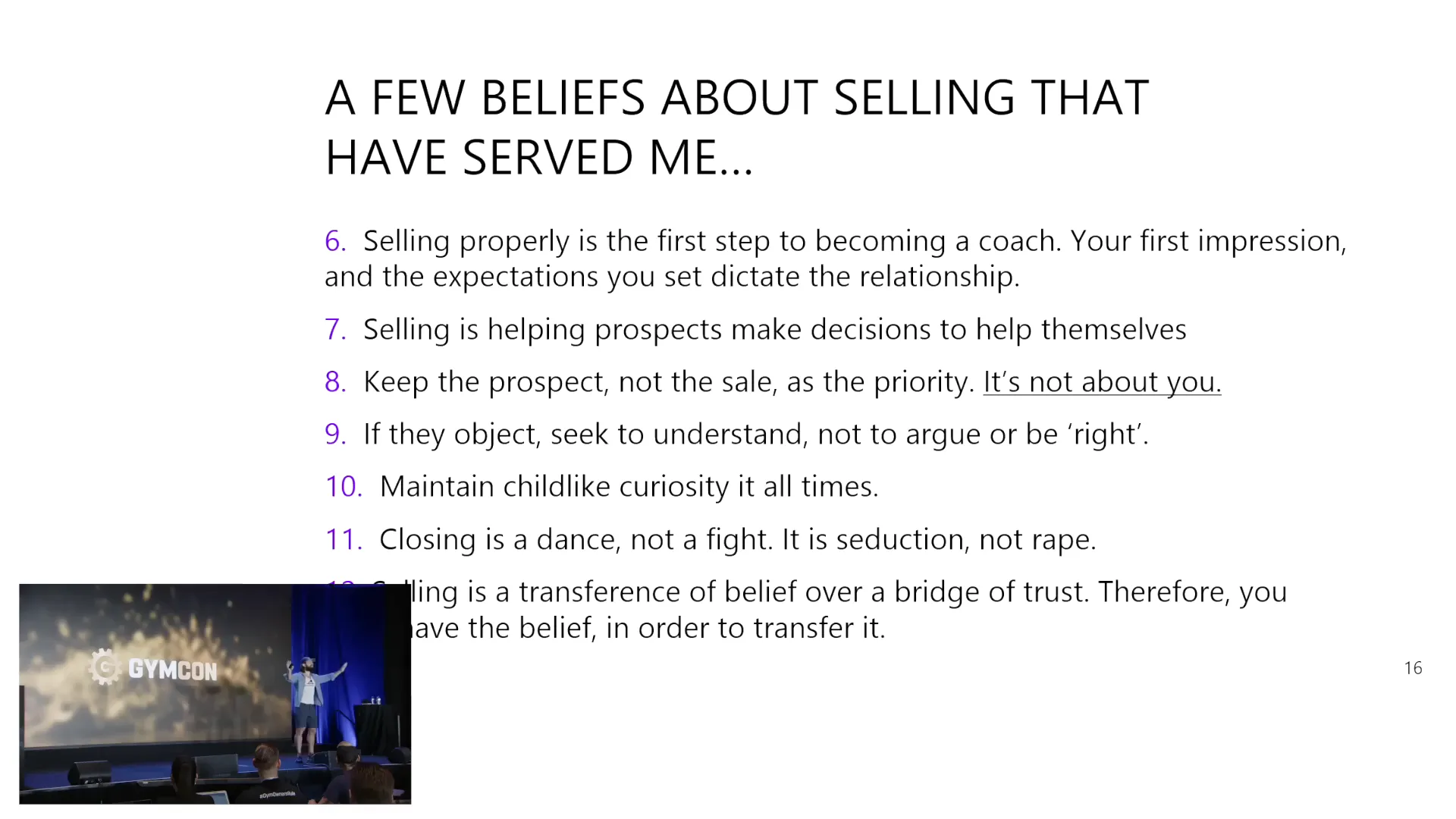
The Power of Resourcefulness in Sales
Resourcefulness is a vital trait for successful salespeople. It involves thinking creatively and finding solutions to challenges that may arise during the sales process. Prospects appreciate when you can adapt and respond to their unique situations, demonstrating your commitment to their success.
By being resourceful, you can address objections, provide relevant information, and offer tailored solutions that meet the prospect's specific needs. This not only helps in closing the sale but also builds a lasting relationship based on mutual respect and understanding.
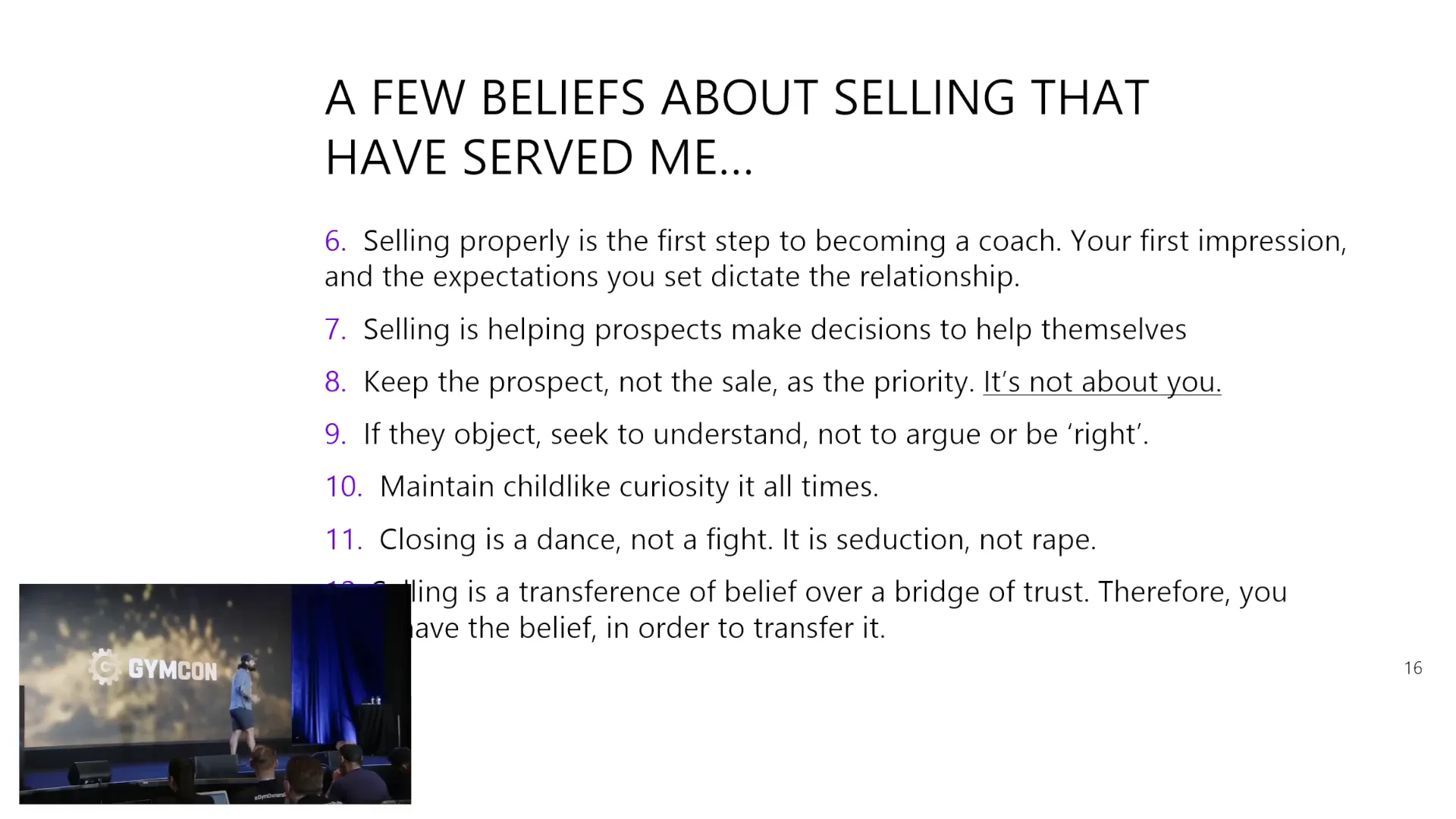
Handling the 'I Need to Think About It' Response
One of the most common responses in sales is the classic, “I need to think about it.” This statement can be frustrating, but it presents an opportunity to further engage with the prospect. Instead of accepting this as a final answer, explore the reasons behind their hesitation.
Ask clarifying questions to uncover any underlying objections or concerns. For instance, inquire about what specific aspects they need to think through. This not only provides valuable insights but also allows you to address any misconceptions, reinforcing the value of your solution. Remember, the goal is to guide them toward a decision that feels right for them, whether that’s a purchase or a well-informed “no.”
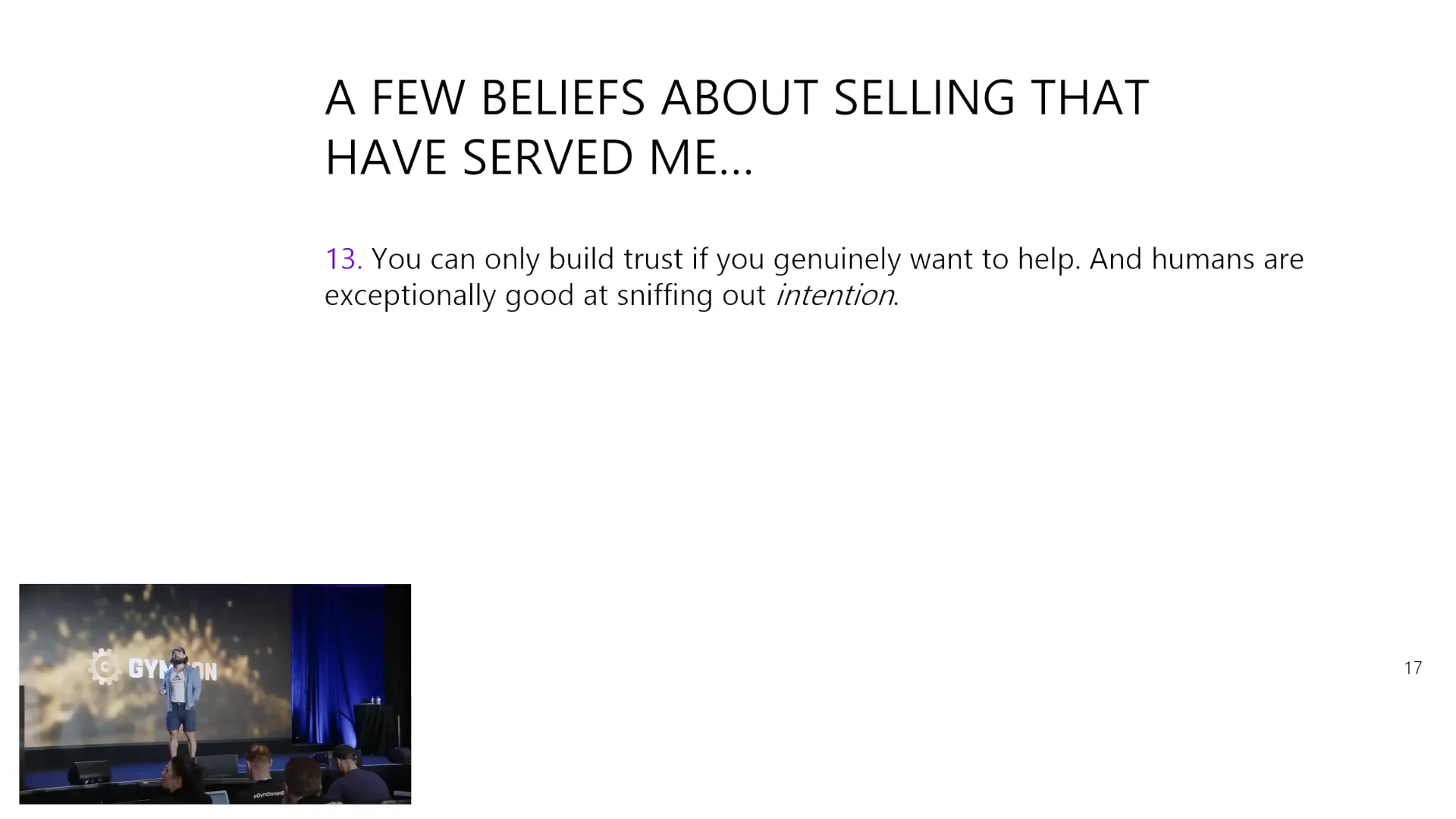
By embracing these principles, you can elevate your sales process and create meaningful connections with your prospects. Each interaction is an opportunity to empower them in their decision-making journey, reinforcing the ethos of "Closing with GFunnel." Ultimately, your success in sales will come from your ability to adapt, listen, and respond with genuine care for your prospects' needs.
For more insights on enhancing your sales strategy, explore our resources at GFunnel. We provide tools and training to help you master the art of selling with integrity.
Creating Value to Overcome Price Objections
In the world of sales, price objections are common. When prospects express concern about cost, it often stems from a lack of perceived value. Your mission is to shift that perception by clearly communicating the value your product or service brings.
Start by understanding what your prospect values most. Is it time, convenience, or results? Tailor your presentation to highlight how your offering directly addresses these priorities.
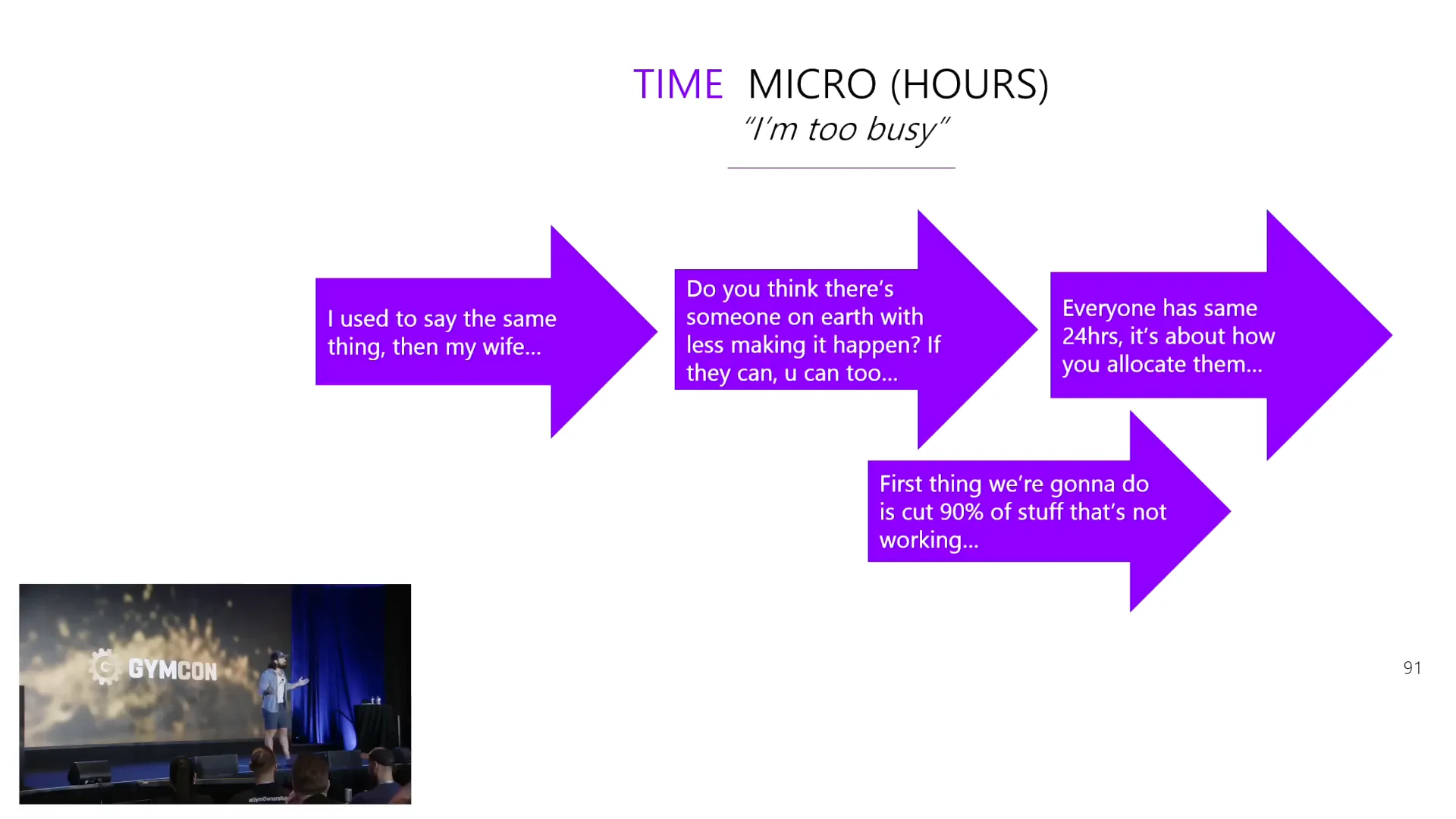
Use storytelling to illustrate the transformative impact of your solution. Share testimonials and case studies that showcase real results achieved by others. When prospects see tangible benefits, the cost becomes a secondary concern.
Moreover, ask probing questions to uncover underlying motivations. By understanding their pain points, you can align your offering with their needs, making the investment feel worthwhile. Remember, the goal is to turn objections into opportunities for deeper engagement.
Empowering Prospects to Make Decisions
Empowering your prospects is about providing them with the tools and information they need to make informed decisions. This involves creating an environment where they feel comfortable expressing their concerns and asking questions.
Encourage open dialogue by actively listening to their feedback. When they feel heard, they are more likely to trust you and your recommendations. Offer options that cater to different preferences, ensuring they see the value in choosing your solution.
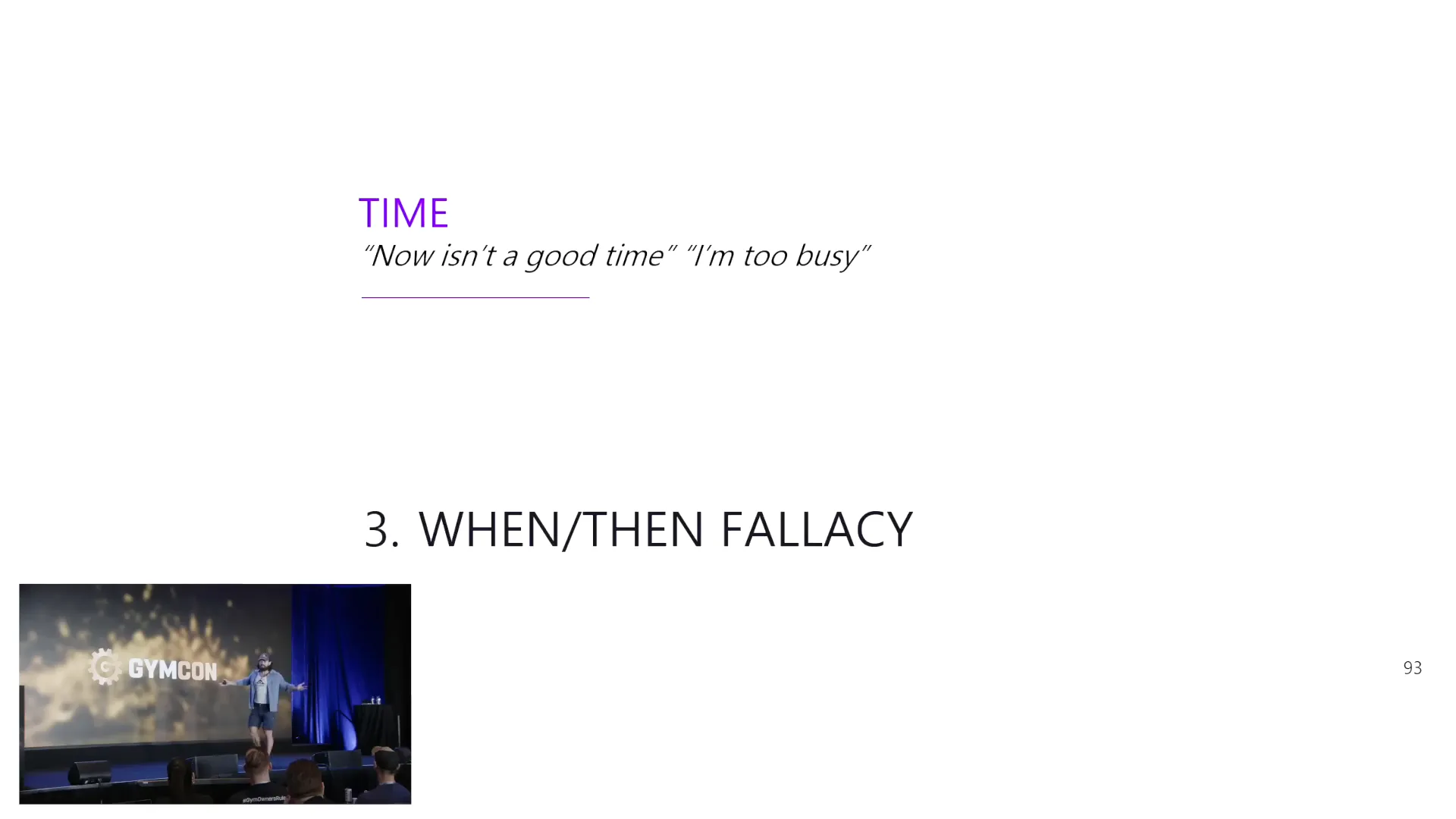
By guiding them through the decision-making process, you can alleviate any fears they may have. Provide clarity on what to expect, potential outcomes, and the steps involved in getting started. This transparency builds confidence and reduces resistance.
Ultimately, your role is to be a trusted advisor, not just a salesperson. When prospects feel empowered, they are more likely to take action and commit to your offering.
Closing Strategies for Every Obstacle
Every sales encounter presents unique challenges, but with the right closing strategies, you can navigate these obstacles effectively. Here are some key techniques to employ:
- Reframe the Objection: When a prospect raises an objection, acknowledge it and reframe it as an opportunity. For instance, instead of seeing a price concern as a barrier, view it as a chance to reinforce value.
- Use the Best Case/Worst Case Close: Present the scenario where they choose your solution and the potential positive outcomes versus the alternative of doing nothing. This method highlights the risk of inaction.
- Offer Guarantees: Ensure prospects feel secure by providing guarantees or trial periods. This reduces perceived risk and encourages commitment.
- Ask for Commitment Directly: Sometimes, a direct approach works best. Ask your prospect, “What would it take for you to move forward today?” This opens a dialogue about any lingering concerns.
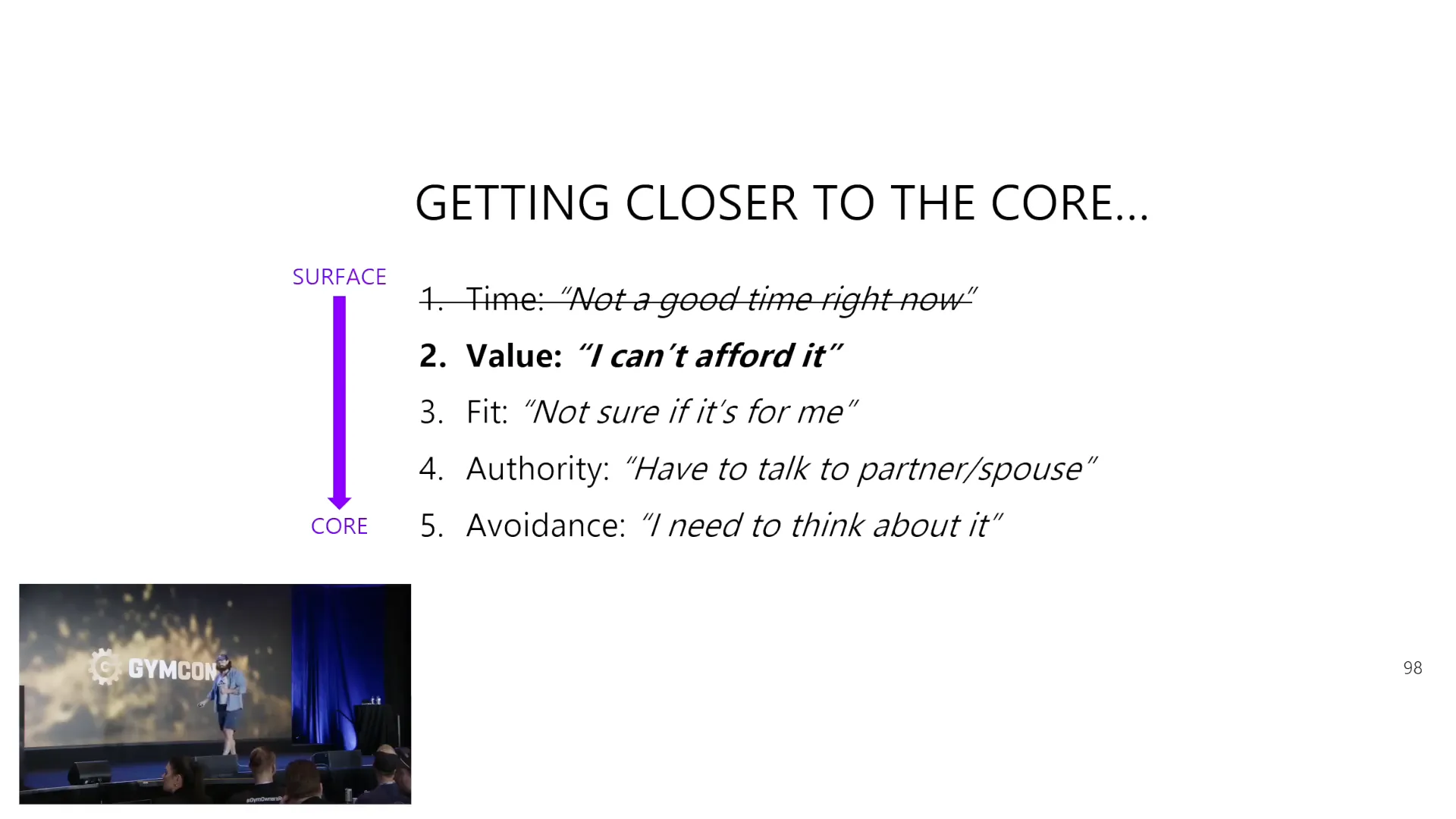
These strategies equip you to address various objections and enhance your closing capabilities. Remember, each obstacle is a chance to demonstrate your value and commitment to your prospect's success.
The Final Thoughts on Closing with GFunnel
Closing with GFunnel is not merely about securing a sale; it’s about fostering relationships built on trust and value. The techniques discussed throughout this blog are designed to empower you to approach sales with integrity and purpose.
As you implement these strategies, keep in mind the importance of understanding your prospects' needs and values. By doing so, you can create an environment where they feel supported and confident in their decisions.
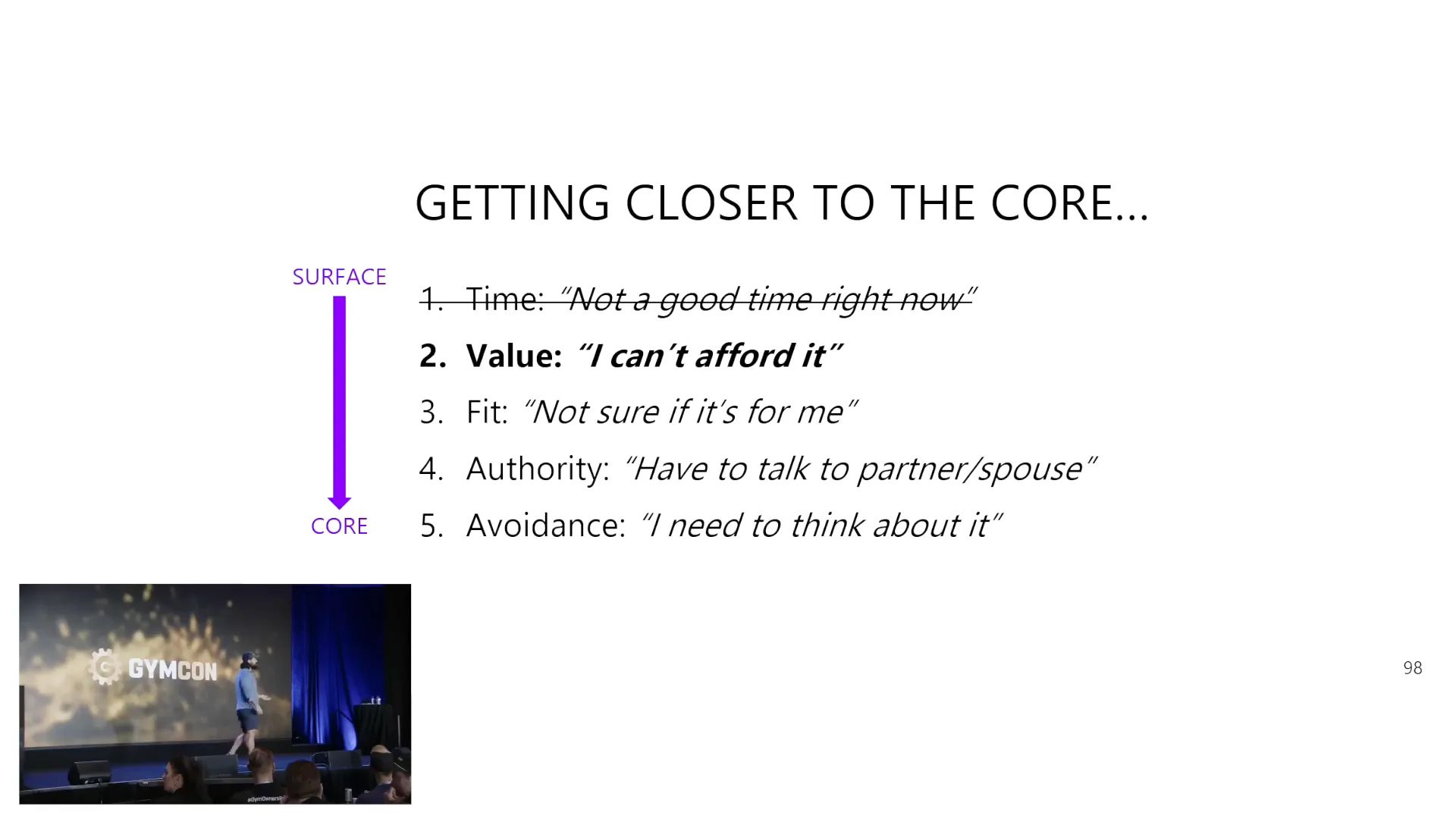
Closing is a skill that can be mastered with practice and dedication. Continue to refine your techniques, learn from each interaction, and always prioritize the prospect's experience. Remember, your success is intertwined with their satisfaction.
FAQ Section
What should I do if a prospect says they need to think about it?
Encourage them to share their concerns. Ask clarifying questions to understand their hesitation better. Offer to provide additional information or set up a follow-up meeting to address their thoughts.
How can I effectively communicate value to my prospects?
Utilize storytelling and real-life examples to illustrate the benefits of your product. Highlight testimonials and case studies that showcase successful outcomes, making the value tangible for your prospects.
What if a prospect doesn't see the value in my offering?
Take the time to understand their pain points and needs. Tailor your presentation to address these specific issues, demonstrating how your solution aligns with their goals and can solve their problems.
How can I handle price objections effectively?
Reframe the objection by discussing the long-term benefits and potential ROI of your offering. Highlight the value they will receive and how it outweighs the initial cost.
Is it important to build rapport with prospects?
Absolutely! Building rapport fosters trust and makes prospects more likely to engage openly. Establishing a genuine connection can significantly enhance your chances of closing the deal.
For more insights on enhancing your sales strategy, explore our resources at GFunnel Courses. We provide tools and training to help you master the art of selling with integrity.